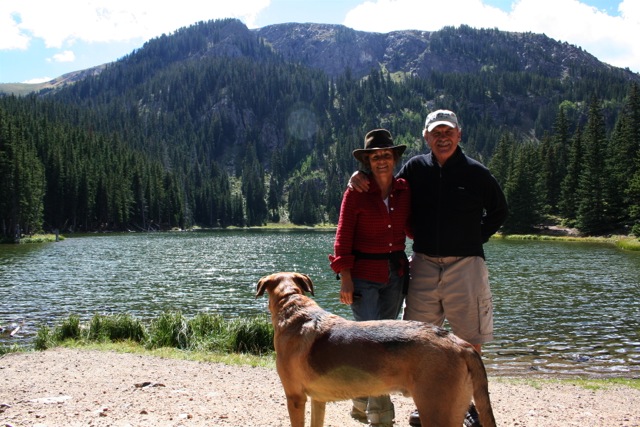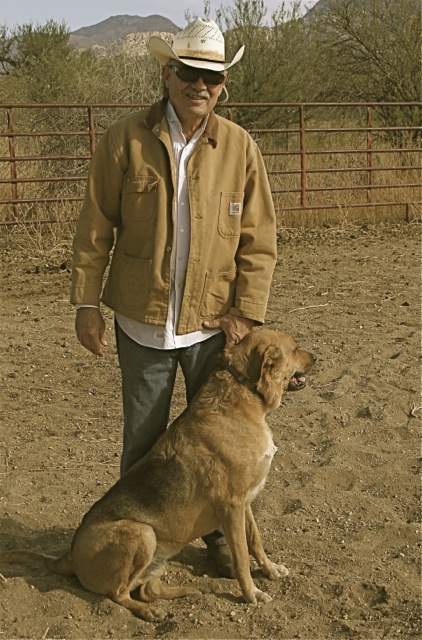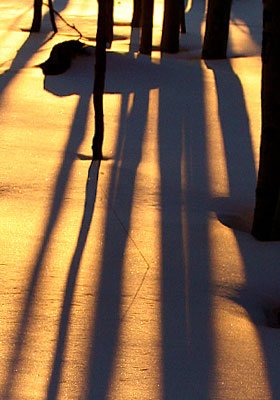Last week I was sitting in my meditation room where I had finished a meditation and was re-reading theologian Jean-Yves LeLoup’s translation and commentary on the Gospel of Mary Magdalene. In it, he was referring to the word “nous,” his translation of a word in the gospel that refers to a state of consciousness. The “nous” is related to what we call the imagination, but it is a higher state, a kind of bridge between the imagination and the realm of spirit. It is the state Mary Magdalene described as the plaee where she was able to perceive the risen Christ.
I was thinking that the “nous” must be where I meet helping spirits in shamanic journeys. Engrossed in these heady ponderings, I suddenly became aware that I felt a presence in the room. It was unmistakably Lobo. I didn’t see him with my physical eye, but I sensed his energy, as if he was prying his big body in between the table and the couch, as he used to do. Saying hello. Wanting to lick me in the face and stare at me with his big eyes.
I’ve felt his presence before many times, and have felt others on “the other side” as well. But the synchronicity of this visit (complete with the energy of his strong wagging tail) and my reading about the “nous” was…striking. I felt Lobo had come to teach me one more lesson. It was on resurrection.
My biological father was killed in World War II when I was just a baby, and he has come to visit several times to help me. The most memorable time was when one of my daughters was in crisis and I felt he had a message for her. So I took it down in the middle of the night. I felt him dictating to me, and the letter contained wisdom that I hadn’t been able to offer, in a voice that was not my own.
Visits from the other side don’t make sense to our rational minds, and yet you may have had an experience of them. It might have been through an unlikely visit by a wild animal. Or by receiving a stunning object from nature. There are many ways the “nous” can lift the veil for us, so that we can receive the love that needs no explaining.
I think Lobo came to remind me that our animals do indeed have souls, and that they become part of our “familiars,” our unseen tribe of helpers, whose wisdom and loyalty we can experience when we relax our minds into that imaginal space where they speak the language of the heart. There is a bridge to a place where we can experience the guidance that makes mystics drunk with the wine of spirit. The word “nous” means “we” in French; this land is a place of rare connection. And it is our birthright.
Thank you, dear Lobo, for your visit, and for this beautiful lesson. How lovely to know that you are waiting across that bridge that must be the rainbow bridge they talk about. Waiting to tell us even more about the new land where you romp freely, and still make your visits to our neighborhood.



